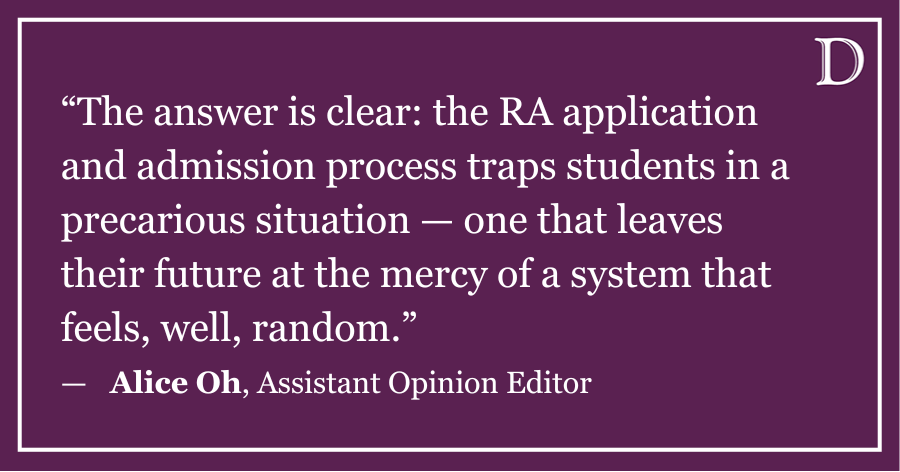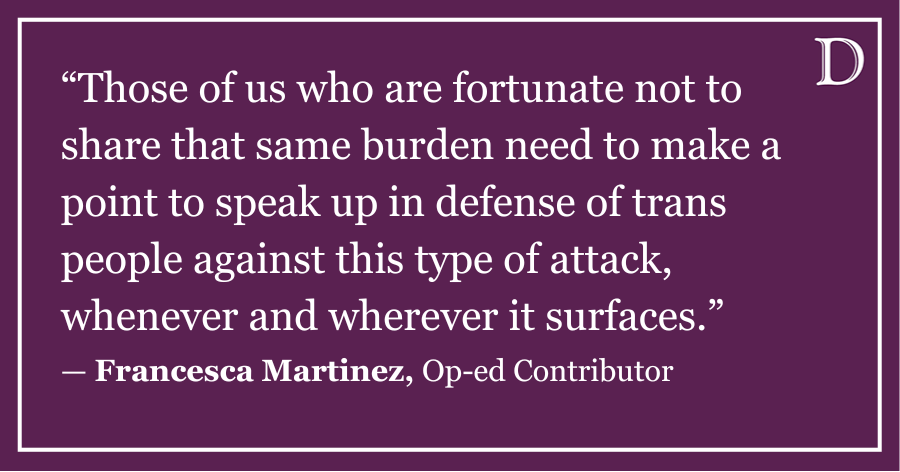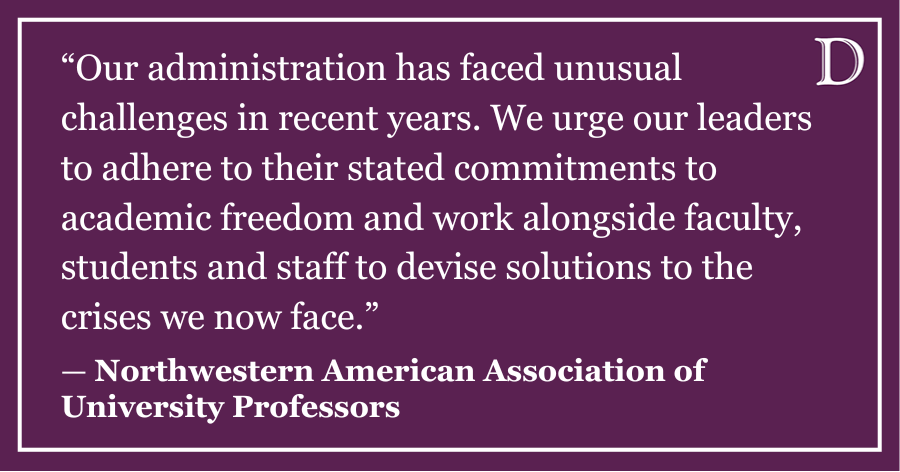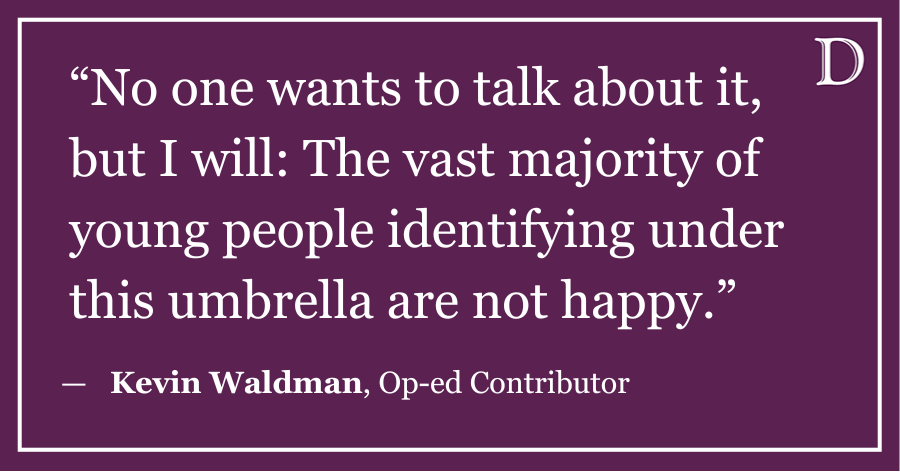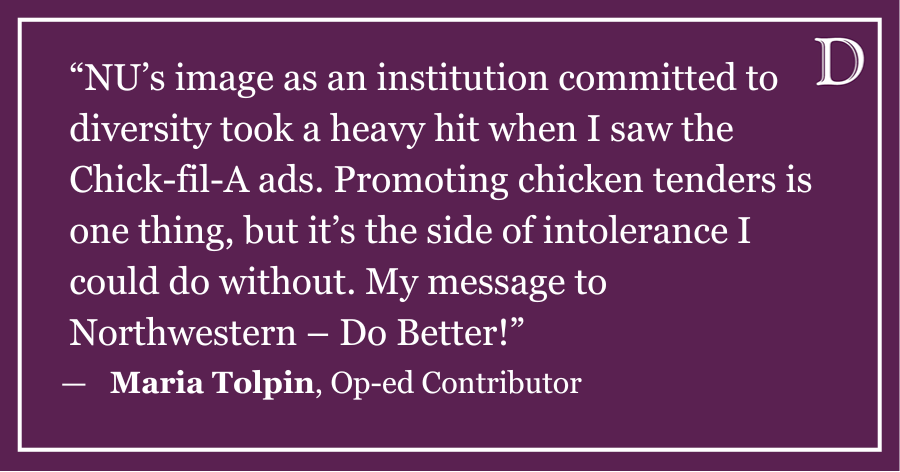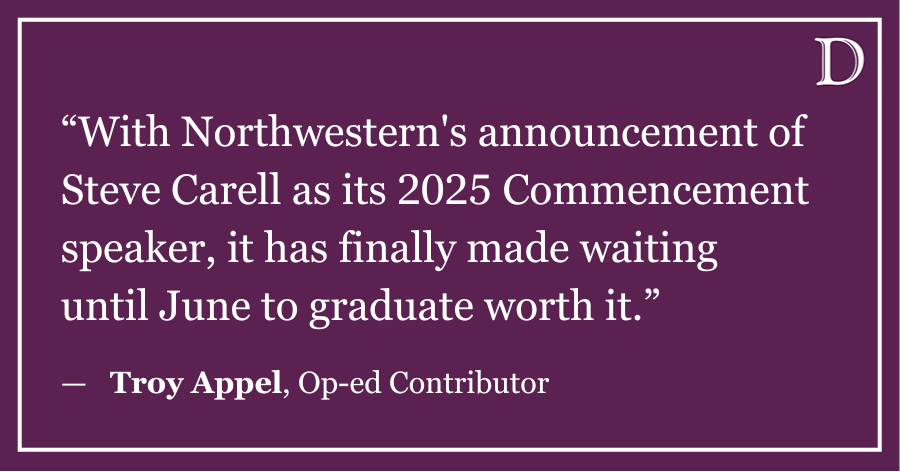We live in a culture that rewards antagonism. Politics, already combative by nature, have become increasingly polarized and partisan. We reward mean-spirited gossip bloggers with money and celebrity status. Even at universities like Northwestern, there is an undercurrent of selfishness. We’re all so busy tending to our responsibilities, academic and otherwise, that everyday kindness can fall by the wayside.
Thankfully, that isn’t always the case. As I rushed out of Tech earlier this week, running late for my next class and attempting to juggle five items in two hands, a stranger went out of his way to hold the door as I struggled to pull myself together. The gesture cost him only about 10 seconds of his time, but its significance stuck with me. If we all made an effort to perform similar random acts of kindness as we go about our days, the collective improvement in our campus culture would be palpable.
Why, given our typically self-serving, me-first culture, should we embrace this course of action? It’s actually easy to rationalize, and was demonstrated to great effect in a memorable Coca-Cola advertisement that ran during the 2007 Super Bowl. The spot, set in a Grand Theft Auto-esque video game world, depicts a character racing through city streets, seemingly about to wreak havoc upon its residents. Instead, he helps the people around him in small ways, extinguishing a trash fire and giving the jacket off his back to a homeless man. Throughout the ad, a song plays: You give a little love and it all comes back to you.
The message (other than to buy more Coke) is clear, if a bit cliché: by helping others, you can help yourself. Even a person who doesn’t believe in the concept of karma can still feel the little rush that he or she gets from improving somebody’s day. This feeling is very real and can serve an important function.
In a perfect world, we would all do what is right, all the time, for no reason other than that it is the right thing to do. In reality, however, inertia can keep us from starting to do good. The extra kick of entirely selfish, good feelings that comes with an act of kindness can push us toward helping others more often.
Some may argue — and have, in fact, here in The Daily — that charity is somehow diminished if the people volunteering their time feel better about themselves as a result. To that, I say, so what? Kindness is not a zero-sum game. The person whose life you made easier by holding the door behind you will appreciate it just as much if you get a moral boost from it as if you don’t. As my roommate put it, it is a testament to the human condition that helping others makes us feel happy.
In an age characterized by the decline of decency, where schadenfreude is practically a national pastime and snarkiness reigns supreme, surely the virtue of showing a little kindness to our fellow man is something on which we can all agree.
Caryn Lenhoff is a Weinberg senior. She can be reached at carynlenhoff2014@u.northwestern.edu. If you want to respond publicly to this column, send a Letter to the Editor to opinion@dailynorthwestern.com.







